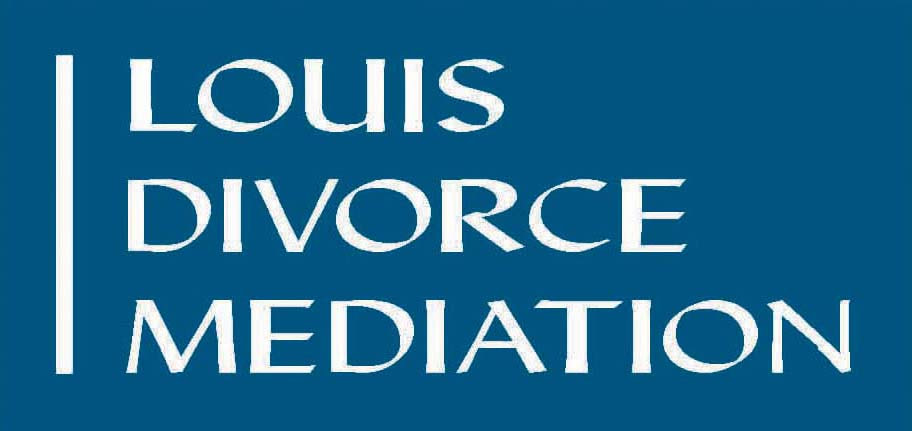Louis Divorce Mediation ~ Online and In-Person Mediation in Chicago
|
Over the years, most of the divorces I have mediated have ended with complete agreement between spouses, allowing them to build their own plan for moving forward with their separate lives.
Generally, clients who self-refer to mediation are looking for a process that will maintain civil and respectful conversations, utilizing the skills of a neutral third party who has an understanding of what elements need to be included in their plan. Perhaps one reason for the high rate of agreement is that most of my clients come to me voluntarily—not referred by the court system. Generally, clients who self-refer to mediation are looking for a process that will maintain civil and respectful conversations, utilizing the skills of a neutral third party who has an understanding of what elements need to be included in their plan. That’s not to say that mediation is easy, as reaching agreements often requires a couple to look inward at their own needs, acknowledge the needs of the other, and develop options that have the best chance of meeting both sets of requirements. The end of a “successful” mediation can be filled with a range of emotions. For clients, there is often a sense of accomplishment, sometimes to their own surprise. While their marriage did not work, they were able to team up to make their own decisions for how to co-parent their children, allocate their assets and debts, and create the best possibilities for two sustainable households. At the same time, as the cloud of uncertainty has lifted, replaced by greater clarity about the future, the reality that the couple is approaching the “official” end of their marriage carries its own set of feelings and reactions, including a need to accept both loss and failure. These are competing emotions, having resolved the issues of divorce but now having to face the fact that the marriage has indeed ended. From my chair, I always attempt to put the most positive face on what has happened in mediation. While a mediator’s skills—structuring an effective process and facilitating difficult conversations—play an important role in helping a couple meet their goals for coming to mediation, the real credit belongs to them. After all, mediation requires the courage to try a process that involves total transparency and take responsibility for doing the work of gathering information, engaging in challenging conversations with a soon to be ex-spouse, and making choices about the future. And so along with giving my clients credit for what they have been able to achieve in mediation, I close every mediation with gratitude that they trusted me to play a role in their transition. Divorce is an experience that most want to forget so they can move on, but, for me, the honor of making a difference is unforgettable.
0 Comments
I am thinking about the two-year-old daughter of current divorce mediation clients. The child was hospitalized with pneumonia, something I only know only because the couple had to cancel their mediation appointment this week—which was totally understandable under the circumstances. I am keeping this child and her parents in my prayers for a return to health.
The promise of mediation— an environment that allows partners to uncouple their marriage while maximizing the probability that they can still effectively co-parent with respect and support for each other As parents, we face many challenges involving our children, including their physical and mental health. For this couple, their choice to mediate their divorce arose from their commitment to the wellbeing of their child, to plan for the end of a marriage while also determining the best way to co-parent their child in separate households. As I read the text message about their child, seeing that they were both at the hospital, I knew that they were supporting each other as parents in their care and concern for their daughter. This reinforces for me the promise of mediation—an environment that allows partners to uncouple their marriage while maximizing the probability that they can still effectively co-parent with respect and support for each other. It is entirely possible that, even if this couple, instead of coming to mediation, had decided to engage in a legal battle over their daughter, they would have dropped their swords and shields when faced with a crisis involving her well being. Thankfully, we’ll never need to know. I can only hope that, by choosing mediation, it’s been easier for them to work together as a team. I recently read a thoughtful essay in the New York Times, authored by Lara Bazelon, entitled “Divorce Can Be an Act of Radical Self-Love.”
Ms. Bazelon’s observations of her own divorce remind me of what I hear from spouses who come to divorce mediation all the time, that they still feel connected (or even still love) their soon to be ex-partner. Yet, in their mind, the marriage is not working, as self-reflection uncovers a lack of happiness and fulfillment. The author summarizes a re-evaluation of her own priorities in the following words, “I divorced my husband not because I didn’t love him. I divorced him because I loved myself even more.” “Divorce is painful and heartbreaking. But it can also be liberating, pointing the way toward a different life that leaves everyone better off, including the children.” —Lara Bazelon The process of divorce, whether through a mediator, attorney or judge, is the building of a bridge from the present to the future. Another observation from Bazelon rings true from my experience working with divorcing couples: “Divorce is painful and heartbreaking. But it can also be liberating, pointing the way toward a different life that leaves everyone better off, including the children.” While the author of these words did not disclose the process she and her partner used to end their marriage, it would seem reasonable to conclude that they took steps to end the marriage with dignity and respect, to preserve all that was good about their relationship, and channel that positive energy toward co-parenting their children and maintaining a strong personal connection to each other. It is typical and understandable for a spouse who has taken the lead to end the marriage to do so in order to advance personal interests. However, as couples transition through divorce, it’s important to recognize that a truly successful outcome requires understanding both one’s own interests and also those of the other spouse and the children. Mediation offers the best chance for self-love to be balanced with the reality that one person is not making all the decisions, even if one spouse is the first one looking to construct a personal bridge into the future. That bridge needs to be wide enough to carry the whole family safely across. The article by Lara Bazelon cited above appeared in the New York Times on September 20, 2021. You may need an account with NYT to access the article; here is the link. I have recently read discussions that refer to mediation as being adversarial. I disagree with this characterization of mediation as an adversarial process. To me, the term adversarial describes conflict, where hostility and opposition to hearing others’ viewpoint stand out.
In my mediation practice, while I concede that spouses who are divorcing are often not in agreement on their plan for moving forward, my efforts from the start focus on creating an environment to promote constructive communication, empowering each spouse to use her/his voice and speak to personal needs and interests. I want the space in which we are meeting, whether in person or remotely, to offer comfort and safety. Through that lens, where I am using my facilitative skills to promote problem solving, I cannot picture mediation as being adversarial. Spouses are involved in a serious conversation, concentrated on creating specific plans for ending their marriage. Is that adversarial? I hope not. In fairness, some come to mediation through a different path. Clients, after being embroiled in the litigation process, may be referred by the court system to mediation. Essentially, the couple is being asked to forget about the litigation experience, which is quite often polarizing, and shift into problem-solving mode. And in many cases, litigating attorneys may themselves participate in sessions with the mediators, still maintaining the posture of being zealous advocates for their clients. Contrast these two circumstances: Clients who come into mediation on their own, perhaps bringing attorneys who understand and support the process, arrive with a goal of seeing our work as solving a human problem and meeting human needs. Clients who come into mediation on their own, perhaps bringing attorneys who understand and support the process (a practice I wholeheartedly endorse), arrive with a goal of seeing our work as solving a human problem and meeting human needs. On the other hand, clients who come into mediation from litigation, especially when ordered by a judge to do so, and particularly when litigating attorneys are involved, may see their divorce as a legal problem to be solved. This may take the form of negotiating over the subjectivity of the law and who has the “better case,” instead of meeting the human needs of the family that is facing a significant life transition. Perhaps the message here is that, the sooner a couple determines that mediation is right for them, the more likely that process will be experienced as non-adversarial. For almost everyone, divorce is very difficult, even when both spouses know the marriage needs to end and think they can agree on how to move forward. There is often a sense of loss, maybe even failure, and self-examination—what went wrong?
When there is not a shared sense that the marriage is over, one of you may feel ready while the other may not feel prepared or equipped to engage in the serious process of determining what separate futures will look like. It may also be that, as the mediation process unfolds, one is wishing it would end (with an agreement and closure) while the other is still processing. What seems to one of you as a delay is a cry by the other for more time to make important decisions. As the mediator who will guide the process, I aim to acknowledge the goal of the spouse who is motivated to finish, while at the same time recognizing the other’s need for time to process information and become emotionally ready to make acceptable decisions. This situation calls for abundant patience—to allow time so that both of you feel involved, engaged, informed and heard. As the mediator who will guide the process, I aim to acknowledge the goal of the spouse who is motivated to finish, while at the same time recognizing the other’s need for time to process information and become emotionally ready to make acceptable decisions. I also remind everyone that the alternative to a possibly slow mediation process is bringing the case to court, a choice that is almost always guaranteed to cause an even longer delay in concluding the marriage. You may well be stressed, worried and wishing the process would end, but a switch to litigation is not likely to result in the outcome you wished for. |
Categories |
David Louis, MPA, CDFA® • Louis Mediation Services - Chicago
|
Chicago Office: 1700 W Irving Park Rd., Suite 105, Chicago, IL 60613
Northbrook Office: 555 Skokie Blvd., Suite 500, Northbrook, IL 60062 |
Copyright © 2024






 RSS Feed
RSS Feed